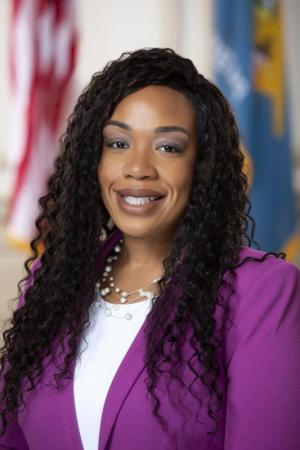How to do better for Delaware mothers with substance use disorders, their children
We hear the stories all the time – stories like this one from a woman who began using cocaine at the age of 12 and who ultimately had seven children, including a son, who was murdered in 2019.
“He was dead for 12 days before I even knew it,” she recalled recently. “Drugs had such a hold on me that I didn’t even know my son was in a morgue.”
She has been in recovery for 20 months now, and she is reconnecting with her other children. But think how her life could have been different had she gotten the treatment she needed when she was younger.
Unfortunately, in the addiction epidemic engulfing Delaware, some of the most vulnerable among us – women who are pregnant or who have children – are being lost to a system that too often is uncaring and ineffective.
The numbers are staggering:
• Among Medicaid enrollees in 2019 (the last year available), 20 percent of pregnant/postpartum women had a substance use disorder diagnosis
• 10.6 percent were addicted to opioids
• Delaware had the fifth-highest rate of pregnant women with SUD in the nation
• On average, 300 infants a year are diagnosed with neonatal abstinence syndrome.
Add to this the fact that 70 percent of women entering treatment have children and that 1,022 children were placed in out-of-home care due to their parents’ drug or alcohol use in 2019, and it is clear that Delaware is in the middle of a public healthcare crisis that affects not just this generation but will impact generations to come.
And yet, we still don’t treat substance use disorder as a health crisis the same way we treat cancer or heart disease or even COVID-19. Instead, we tend to silo our approaches to treatment, divide our resources, and then blame the victims.
This is not simply an issue of money, though the Medicaid reimbursement rates that leave nonprofit providers in the red must be addressed. Rather, a crisis of this magnitude demands looking at people differently than we do now and taking a holistic approach to treatment that incorporates all facets of physical, mental and socio-economic health instead of just kicking the problems down the road.
In Delaware, this means developing a more comprehensive and integrated universe of care that includes prevention, short- and long-term treatment, medication-assisted treatment, recovery support and housing. And it will require a true partnership among state and local governments and the nonprofit and private sectors.
Sadly, such a mindset doesn’t exist today, and we have only ourselves to blame.
To address this, we don’t need to reinvent the wheel, but all concerned need to work together, in conjunction with treatment providers, to think and act differently to address the totality of need and the entire continuum of care for the women and children of Delaware.
House Bill 234 is a key first step. This legislation would expand Medicaid coverage in Delaware for new mothers from 60 days to a full 12 months after the birth of a child. This will help correct a glaring disparity in maternal mortality rates and improve access to comprehensive care for chronic conditions, including behavioral health.
Passing this legislation will show that Delaware is serious about protecting women and ensure that their children get the start they need. Let’s break the cycle. Let’s provide the help and care for those who need it most, and do it in the most compassionate and effective ways possible.























































